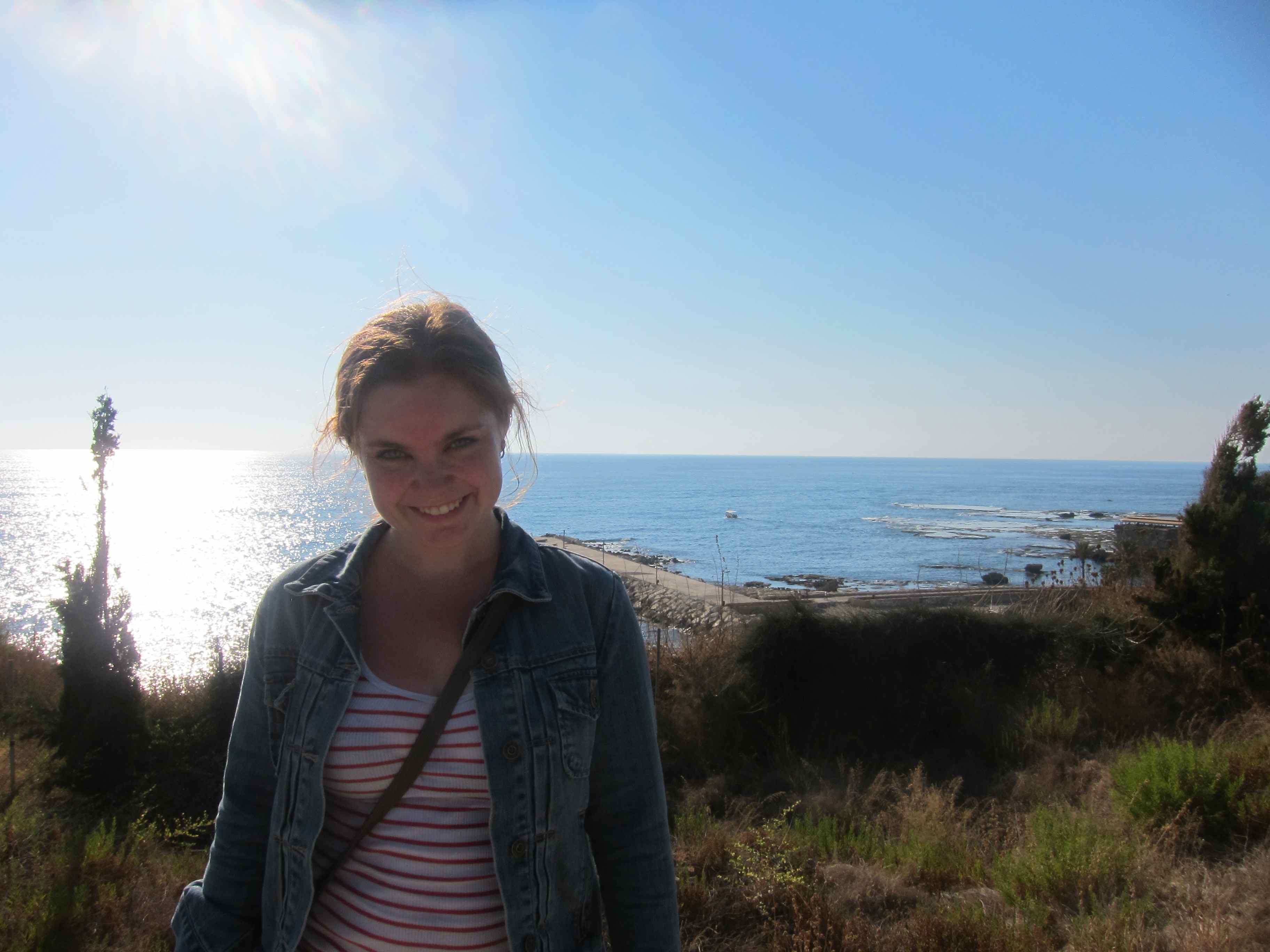A Week In Lebanon
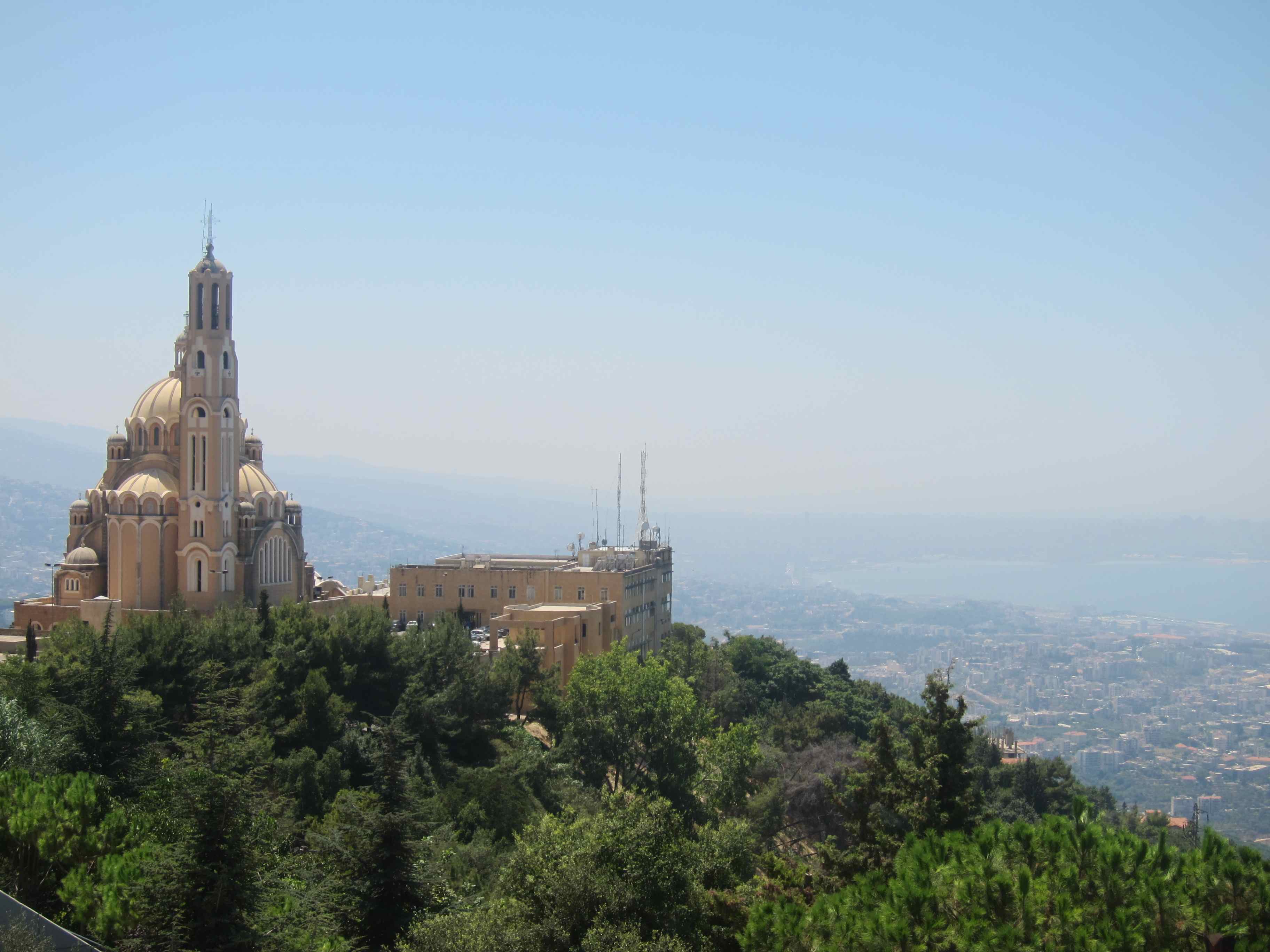
Since I’ve spent the majority of this past year in not-America, I’ve tried to travel to places I’ve never been, now that I’m already out-and-about. I think I’ve covered about eleven countries in the past eleven months, but the country that has made the single biggest impression on me (other than my beloved Hungary) is Lebanon. Definitely Lebanon. I feel like I could write three blog posts worth of material about Lebanon here, but since brevity is the soul of wit, I’ll just try to outline a few observations that stood out to me:
My first observation: I guess it’s not common to stand in line in Lebanon. Instead, it’s better to chat and laugh and yell and sing while waiting for things!
I first noticed this on the airplane to Beirut. In Hungary, I stand in line for everything - the bank, the grocery store checkout, the metro ticket booth, everything. But when I went to board the plane to Lebanon, there was just a mob of people ready to get in and fly away. And, as soon as the plane took off, people were immediately standing and laughing and yelling in the aisles, until the flight attendant started yelling into the intercom to try to quiet everyone down. And when the plane landed, people immediately stood up again before we were even allowed to unfasten our seatbelts.
This was no different within the city of Beirut. Standing in line simply is not a thing people do. And, you know, while it was really overwhelming at first, by the end of my trip the idea of no lines really grew on me.
Sometimes Beirut seems more westernized than America itself. Parts of Beirut are certainly more westernized than anywhere I’ve been in the past three or four months. Within five blocks of our hotel, we could see Starbucks, Caribou Coffee, Dunkin Donuts, Krispy Kreme, Costa Coffee, and pretty much any American fast food chain you could imagine. I sort of felt disappointed at first, since I was hoping to see Shawarma stands on every street corner, not McDonald’s. But hey, McDonald’s here does free delivery!
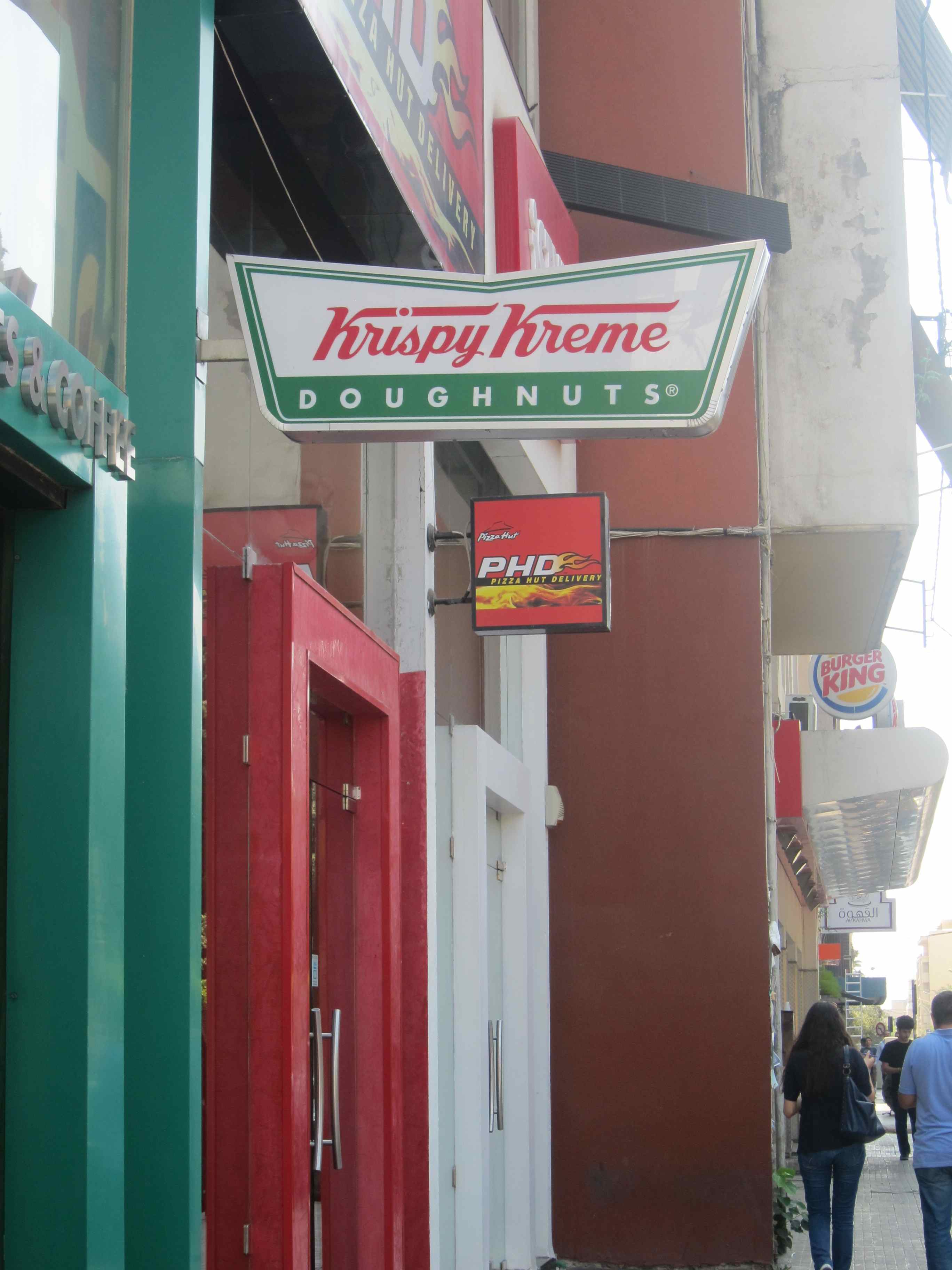
Beirut feels a little bit like the Las Vegas of the Middle East. We were there during Ramadan, and even though some restaurants weren’t serving food during the day, there was no shortage of parties and food and music and dancing. We spent one day at the beach, and there were plenty of crispy fake-tanned people sipping overpriced Margaritas along the water. But Beirut also has amazingly cool nightlife. Gemmayzeh street in particular has a lot of really neat bars and pubs and people (if you need a bar recommendation, we went to Bulldog).
But sometimes Beirut does not feel Americanized at all. There are no streets here. Well, not in the traditional sense. I guess there are street names somewhere. Maybe? But I never saw any street signs, and nobody uses street names. Instead, just give the taxi driver some landmarks. Overhead in our taxi cab: “Just take us to the Armenian restaurant near the church!” Also, I guess seatbelts aren’t a thing either? While the idea of never standing in line grew on me, no seatbelts will NEVER EVER grow on me. Please please please, Lebanon, I want more seatbelts here! Especially since your streets have no organization whatsoever!
I think Beirut has the best food I have ever tasted. Nowhere else in the world have I tasted such delicious hummus, fresh Shawarma sandwiches with tasty garlic sauce and french fries inside the sandwich, falafel with mint and tomato, and even Armenian food! Beirut has its own little Armenia, Bourj Hammoud, where many of the survivors of the Armenian genocide left to live. We went to a Armenian restaurant recommended by Anthony Bourdain that had the most delicious fresh salad, dumplings in yogurt, and meat with cherry sauce. It was really unique and tasty. Here’s the best hummus on the planet (with potatoes and grape leaves):
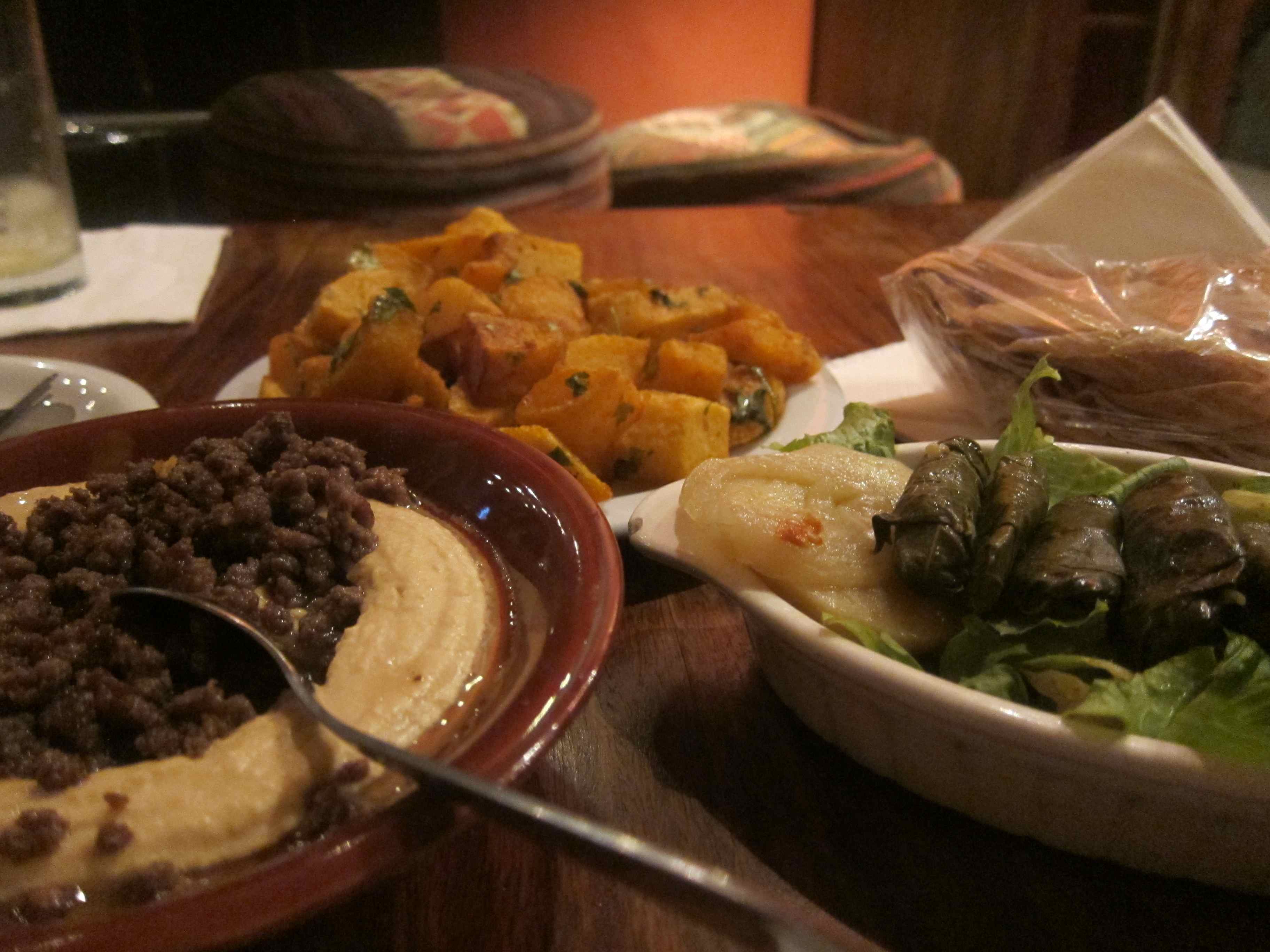
Lebanon has a lot of old things. Here are some ruins with the most gorgeous view of the Mediterranean. They are in Byblos, one of the most beautiful places I have ever been:

Also, we went to some old caves, the Jeita grotto, where we rode boats around the water running through the cave. It felt a bit like an Indiana Jones movie.
Despite all the wonderful things I have to say about Lebanon and Beirut in particular, I observed a lot of not-so-nice things about the country too and some things that really changed my perception of the Middle East. For one, the Lebanese government is paranoid. We couldn’t even take pictures around big national and political landmarks because the guards surrounding them would have asked us to delete them.
The Lebanese government does nothing for its people. They have no hold of the country whatsoever, and this is why non-governmental actors like Hezbollah have gained so much power. For example, the day before I was scheduled to fly in to Beirut, one Lebanese clan single-handedly shut down the road to the airport for political reasons related to the war in Syria. The government did nothing to stop it. In addition, this aforementioned family went on a kidnapping spree against Syrians, Turks, and Gulf Arabs in retrubution for the capture of one of their compatriots in Damascus (the very week I was there. But I promise I felt very safe within the city of Beirut!!).
Because the government has essentially no power (especially in the face of these wealthy Lebanese families who have the government wrapped around their fingers), Hezbollah seems to have taken up the slack where the government has dropped off. Though many Lebanese are not fans of Hezbollah, many are, and it does appear that Hezbollah does have many Lebanese interests at heart. For example, Hezbollah has hospitals and educational institutes. They provide cheap medical care and help out poor families who need assistance. From what I’ve read, they even do infrasturctural things, like take care of garbage collection and repair schools and other things.
Maybe I’ve just been living in a bubble my whole life, but never have I seen such stark racism and class inequality here. As I said before, wealthy Lebanese families control the government, but they also seem to have all the money. Lots of stuff in Beirut is really expensive (especially along Hamra street) - the price of eating out in a restaurant is comparable to the price of eating out in an American city. Designer stores are full of customers at all hours of the day (whereas in Budapest most designer stores are always empty). Plus, a lot of these people are crazy drivers - I probably do not have enough fingers on my hands to count the number of times I was nearly hit by a Ferrari or Mercedes or BMW. :) It’s clear that a big group of people here have money that they are willing to spend. But on the flip side, there is a lot of poverty in Lebanon. A taxi driver usually only makes less than 5 dollars for a half hour taxi ride - and this needs to cover the cost of his car and fuel (I’ve paid closer to 20 dollars for a similar ride in Budapest)! There are lots of homeless people in the streets. But one of the most striking things to me here was the horrible racism which the Lebanese don’t even seem to try to disguise. It looks like most of the wealthy Lebanese families have their own little groups of slaves. At least that’s what it appears to be. They dress differently, walk behind the families, and are usually seen pushing huge shopping carts, toting bags for their families, or carrying children around. It does not appear that they are treated well, and, from what I’ve read, on average, one worker a week dies (either from overwork or suicide). It was pretty hard for me to grasp, especially at first, so during my first two days in Beirut I was really turned off to the city. :(
Despite all the sad things I observed about Lebanon, by the end of my week there, I was really fascinated and in love with the country! Even though there are a lot of problems and instabilities in the country currently, nearly every person we talked to (from taxi drivers to restaurant hostesses to drunk people in boats) loved Lebanon and was intent on making sure we were as in love with it was they were. So many people went out of their way to help us around Lebanon (shoutout to Jad, pictured here, who did our laundry and took us to the best Shawarma ever!). 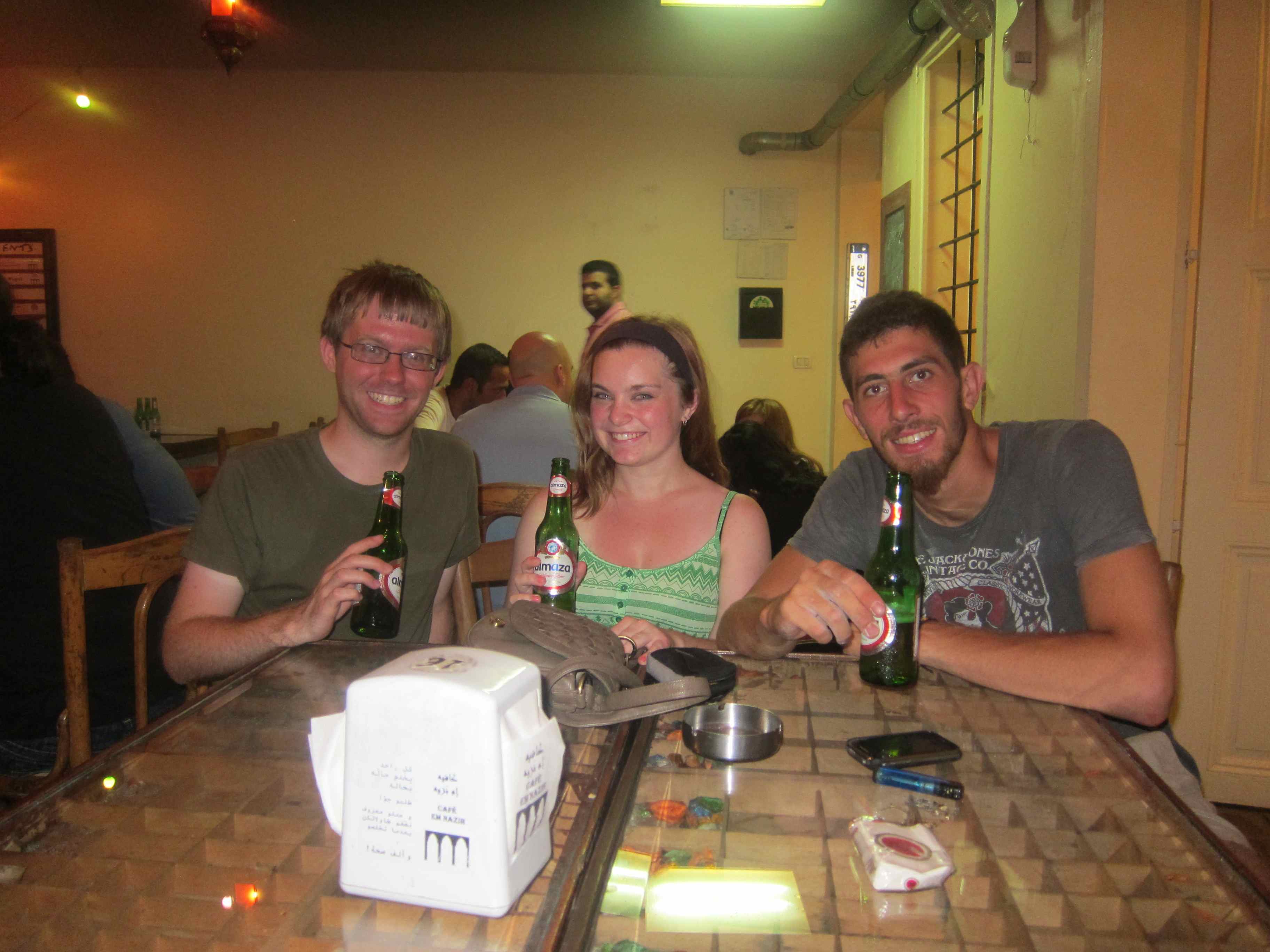 I remember in particular, one man named George (who was Lebanese but worked in Saudi Arabia to earn more money) was basically pleading with us to not think of Lebanon as a country always ravaged by war and controlled by terrorist organizations, but to love Lebanon for its amazing diversity, food, culture, and people.
I remember in particular, one man named George (who was Lebanese but worked in Saudi Arabia to earn more money) was basically pleading with us to not think of Lebanon as a country always ravaged by war and controlled by terrorist organizations, but to love Lebanon for its amazing diversity, food, culture, and people.
And this is why I love Lebanon. It’s so wonderfully diverse, fascinating, resilient, unique, but most of all, friendly. I’m eagerly awaiting the day I can go back. Hopefully soon.
